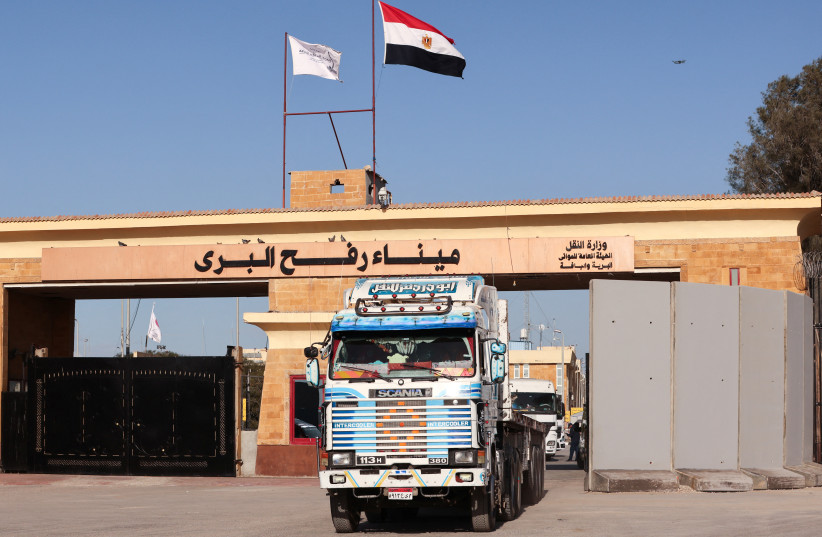‘The day after Hamas’: Netanyahu reveals his plans for a post-Hamas Gaza Strip
Prime Minister Benjamin Netanyahu presented the “Plan for the day after Hamas” to members of the political and security cabinet after midnight on Friday, according to Israeli media.
The main points of the plan deal with identifying a civilian-level body that will be responsible for the demilitarization of the Gaza Strip, and will preserve the IDF’s freedom of action.
“Israel will maintain operational freedom of action in the entire Gaza Strip, without a time limit, for the purpose of preventing the renewal of terrorism and thwarting threats from Gaza,” reads the beginning of the document.
It was also stated that “the security space established in the Gaza Strip in the area bordering Israel will exist as long as there is a security need for it.”
Regarding the Rafah crossing, the plan says that Israel will act to prevent the transfer of ammunition to the Gaza Strip.

However, it seems that Netanyahu is trying in this section to avoid a clear reference to the possibility of future significant action in the region: “Israel will maintain a ‘southern closure’ on the Gaza-Egypt border, for the purpose of preventing the re-intensification of terrorist elements in the Gaza Strip.”
“The ‘Southern Barrier’ will operate, as much as possible, in cooperation with Egypt and with the assistance of the US, and will be based on measures to prevent smuggling from Egypt both underground and above ground, including at the Rafah crossing.”
Additionally, there will be a complete demilitarization in the Gaza Strip of any military capacity, beyond what is required for maintaining public order. “The responsibility for realizing this goal and overseeing its existence in the foreseeable future is given to Israel.”
A civilian-level body
Netanyahu also stated that he will work to ensure that the civil management and responsibility for the public foundation in the Gaza Strip are based on local bodies with management experience, who are not identified with countries or entities that support terrorism. Also, a comprehensive program will be held in all religious, educational, and welfare institutions in the Gaza Strip.
In addition, Netanyahu emphasized that Israel will work to bring about the closure of UNRWA, some of whose operators took part in the murderous massacre last October: “Israel will work to end UNRWA’s activities in the Gaza Strip and replace them with responsible international aid agencies.”
At the end of the document, Netanyahu once again expressed his opposition to the unilateral establishment of a Palestinian state: “Israel outright rejects international dictates regarding a permanent settlement with the Palestinians. Such a settlement will only be achieved through honest negotiations between the parties, without preconditions.”
“Israel will continue to oppose unilateral recognition in a Palestinian state. Such a recognition following the massacre of October 7 would give a huge reward to unprecedented terrorism and prevent any future settlement for peace.”
A week ago, Jackie Hogi revealed in Maariv that the enclave plan was being considered in Israel for the day after the war.
The idea is based on Israeli cooperation with local representatives. Netanyahu excluded the two great powers of the Palestinian people – Hamas and the Palestinian Authority and would not give them a place in the experiment. Arab diplomats who are familiar with the details say that they are currently looking for Gazans who will agree to cooperate in the first project.
On paper, it looks promising. We will rebuild them, what can go wrong?
But as soon as the performance begins, a card we didn’t know will be thrown into play: reality. From the first moment, these enclaves will be declared hostile areas by Hamas, and those local leaders will be denounced as collaborators.





Comments are closed.